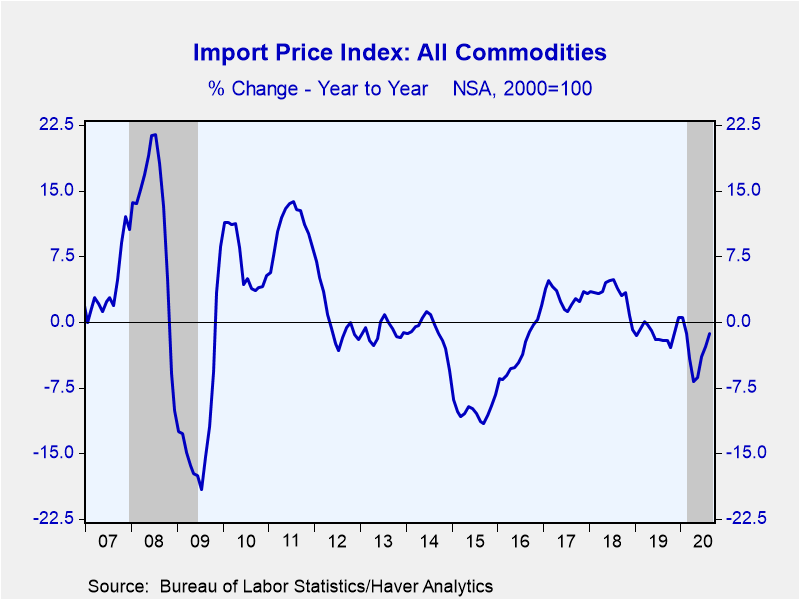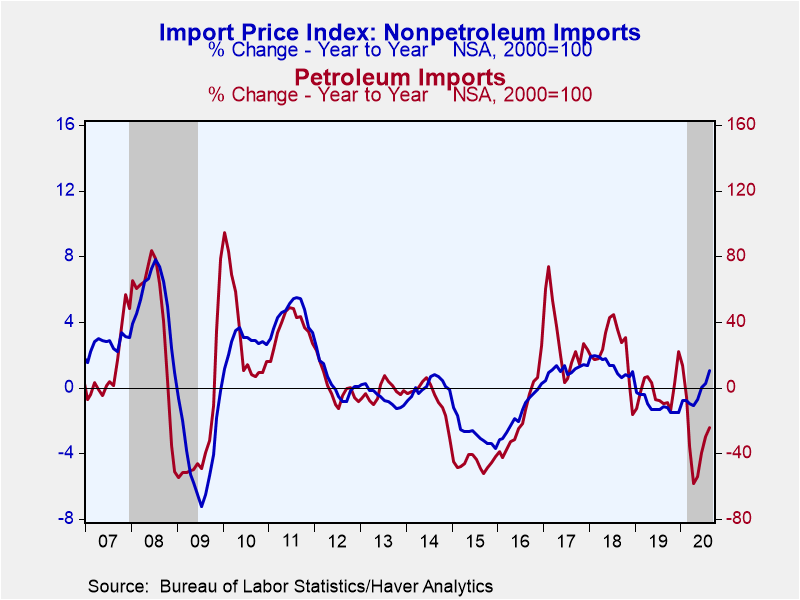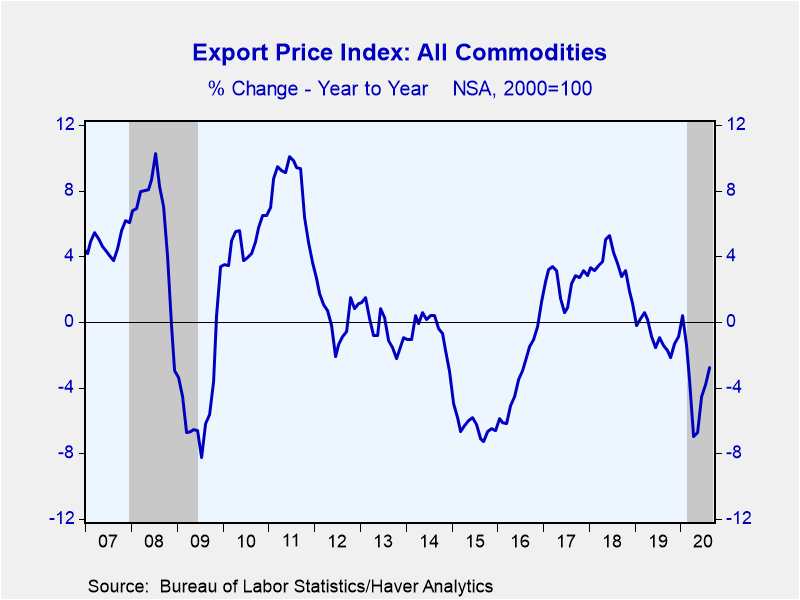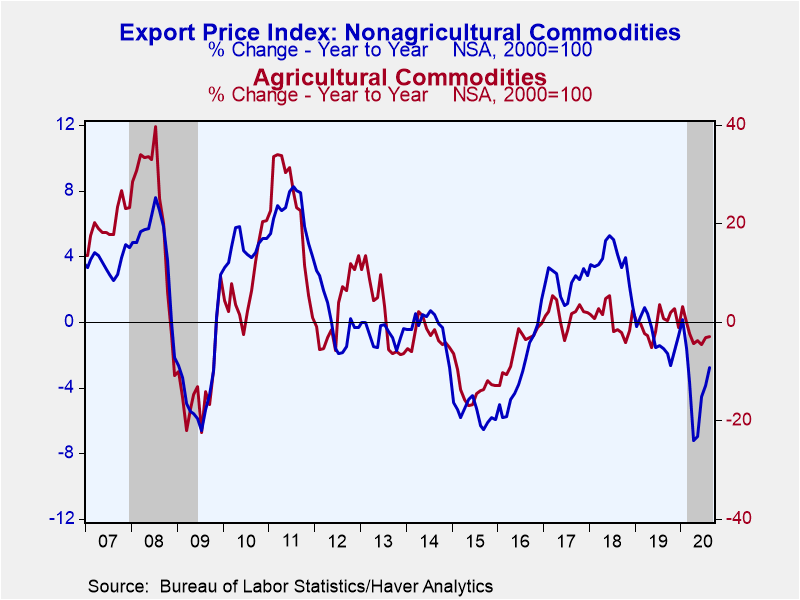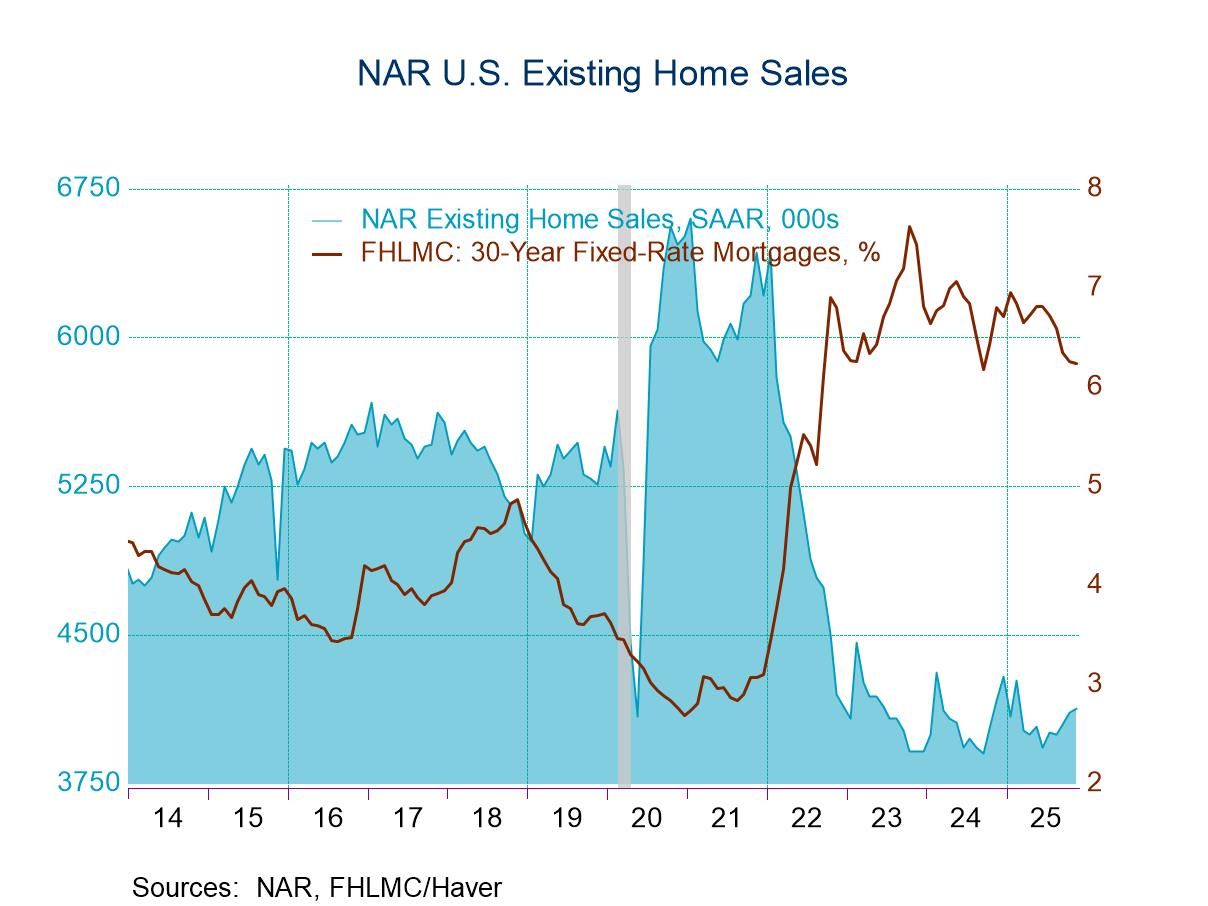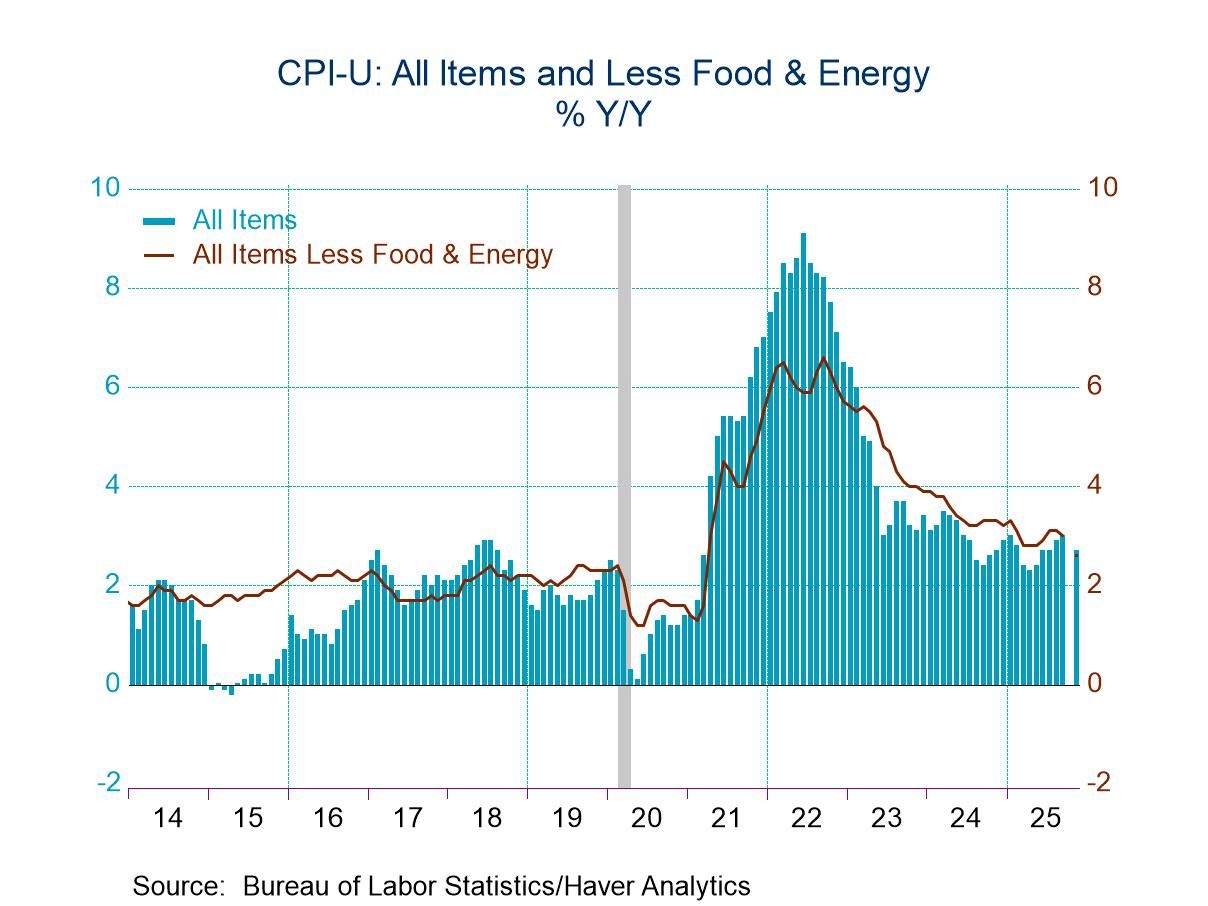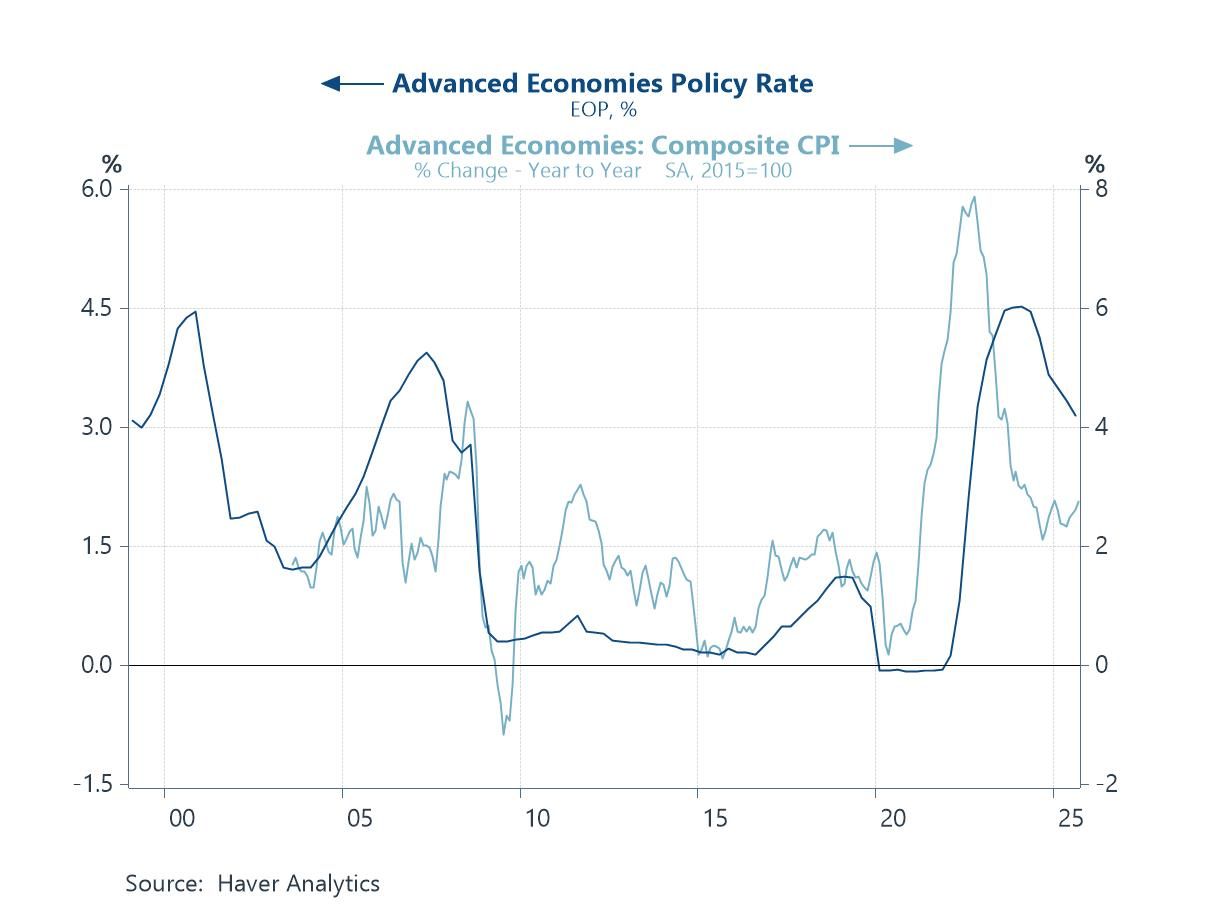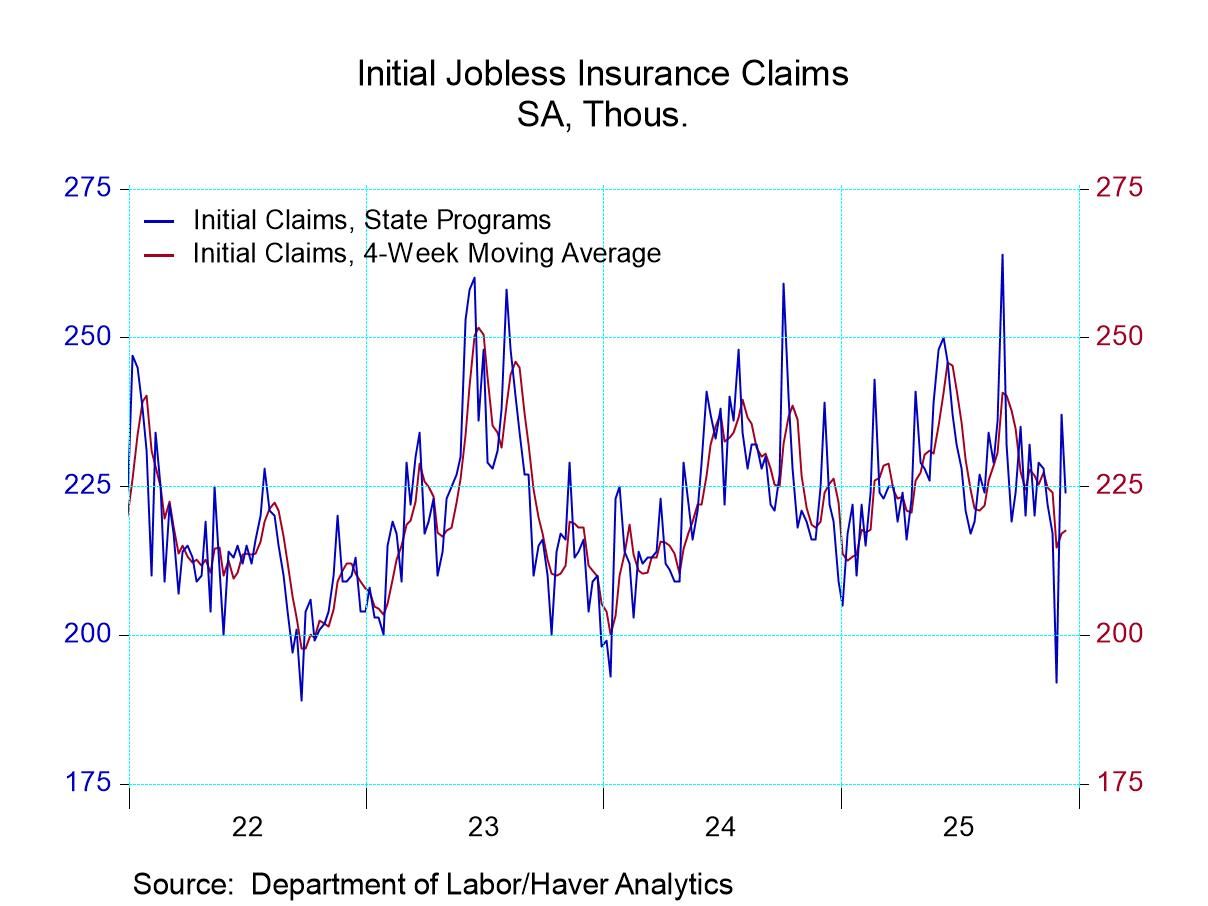 Global| Sep 15 2020
Global| Sep 15 2020U.S. Import & Export Prices Rise Sharply Again in August
by:Tom Moeller
|in:Economy in Brief
Summary
• Price increases are broad-based. • Oil import prices firm but farm export prices ease. Import prices increased 0.9% (-1.4% y/y) during August following a 1.2% July rise, revised from 0.7%. A 0.5% gain had been expected in the Action [...]
• Price increases are broad-based.
• Oil import prices firm but farm export prices ease.
Import prices increased 0.9% (-1.4% y/y) during August following a 1.2% July rise, revised from 0.7%. A 0.5% gain had been expected in the Action Economics Forecast Survey. During the last three months, import prices rose 14.9% (AR), the strongest rate of growth since May 2011. These figures are not seasonally adjusted and do not include import duties.
A 2.9% jump in the cost of petroleum & petroleum products (-24.1% y/y) led the rise in import prices last month. It followed three straight months of strong increase. The July rise was revised to 16.5% from 7.8%. Nonpetroleum import prices improved 0.7% (1.1% y/y) following a 0.2% gain in July. Prices have risen 5.1% (AR) during the last three months. It too was the strongest growth since January 2011 and improved from price deflation as recently as April. Import prices of industrial materials excluding petroleum strengthened 3.9% (4.9% y/y) following a 0.9% July gain. Capital goods prices edged 0.1% higher (0.5% y/y) for a second straight month and have been rising steadily since December. Capital goods prices excluding computers strengthened 0.2% (0.8% y/y) while prices for computers & peripherals fell 0.2% (-0.6% y/y). Nonauto consumer goods improved 0.2% in August (0.0% y/y) after gaining 0.3%. Rising 0.4% (-0.3% y/y) were prices of foods, feeds & beverages. Auto, parts & engine prices improved 0.1% (0.8% y/y) following a 0.2% decline.
Export prices rose 0.5% (-2.8% y/y) during August after increasing 0.9% in July, revised from 0.8%. A 0.4% gain had been expected. Prices have risen 13.5% (AR) during the last three months.
The August rise reflected a 0.8% gain (-2.8% y/y) in nonagricultural product prices after improving 0.9% in July. Agricultural product prices fell 2.2% (-2.9% y/y) following two months of 1.6% increase. Export prices for foods, feeds & beverages dropped 2.1% (-3.0% y/y) after rising 1.6%. Nonagricultural product prices rose 0.8% (-2.8% y/y), strong for the third straight month. Industrial materials prices jumped 2.2% (-8.1% y/y) as petroleum product costs increased 1.4% (-27.0% y/y). Capital goods prices improved 0.1% (0.8% y/y) but computer, peripheral & semiconductor prices held steady (0.2% y/y) after rising 0.2%. Excluding these products, the cost of capital goods rose 0.1% (1.0% y/y) after improving 0.3%. Auto & auto product export prices held steady (-0.4% y/y) after four straight months of decline, while nonauto consumer goods prices increased 0.3% (-0.9% y/y) after a 0.2% increase.
The import and export price series can be found in Haver's USECON database. Detailed figures are available in the USINT database. The expectations figure from the Action Economics Forecast Survey is in the AS1REPNA database.
| Import/Export Prices (NSA, %) | Aug | Jul | Jun | Aug Y/Y | 2019 | 2018 | 2017 |
|---|---|---|---|---|---|---|---|
| Imports - All Commodities | 0.9 | 1.2 | 1.4 | -1.4 | -1.3 | 3.1 | 2.9 |
| Petroleum & Petroleum Products | 2.9 | 16.5 | 22.5 | -24.1 | -2.6 | 22.0 | 25.6 |
| Nonpetroleum | 0.7 | 0.2 | 0.4 | 1.1 | -1.1 | 1.3 | 1.1 |
| Exports - All Commodities | 0.5 | 0.9 | 1.8 | -2.8 | -0.9 | 3.4 | 2.4 |
| Agricultural | -2.2 | 1.6 | 1.6 | -2.9 | -0.4 | 0.6 | 1.5 |
| Nonagricultural | 0.8 | 0.9 | 1.7 | -2.8 | -0.9 | 3.7 | 2.5 |
Tom Moeller
AuthorMore in Author Profile »Prior to joining Haver Analytics in 2000, Mr. Moeller worked as the Economist at Chancellor Capital Management from 1985 to 1999. There, he developed comprehensive economic forecasts and interpreted economic data for equity and fixed income portfolio managers. Also at Chancellor, Mr. Moeller worked as an equity analyst and was responsible for researching and rating companies in the economically sensitive automobile and housing industries for investment in Chancellor’s equity portfolio. Prior to joining Chancellor, Mr. Moeller was an Economist at Citibank from 1979 to 1984. He also analyzed pricing behavior in the metals industry for the Council on Wage and Price Stability in Washington, D.C. In 1999, Mr. Moeller received the award for most accurate forecast from the Forecasters' Club of New York. From 1990 to 1992 he was President of the New York Association for Business Economists. Mr. Moeller earned an M.B.A. in Finance from Fordham University, where he graduated in 1987. He holds a Bachelor of Arts in Economics from George Washington University.


